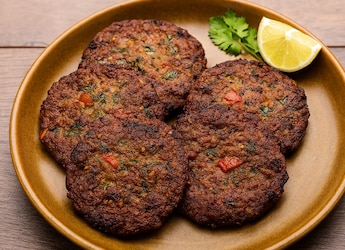The rising temperature in the summer months increases the risks of foodborne illnesses. Bacteria are present all around and in warm temperatures, they multiply faster. Bacteria cause food poisoning and thrive in warm, humid conditions, making it even more important to follow strict food safety practices. Whether you are hosting a party, going on a trip, or simply cooking at home, here are some essential tips to ensure food safety during the summer.
Also Read: Tips To Stay Cool While Cooking In Summer
Here're 9 Summer Essential Tips For Food Safety:
1. Keep Temperature In Check While Storing Food:
Proper temperature control for storing cooked and uncooked food is the first step towards food safety. Bacteria multiply the most between four degrees centigrade and 60 degrees centigrade. Therefore, it is important to keep cold food cold and warm food warm.
Tips to remember while storing cold food:
- Refrigerate perishable foods like meat, poultry, seafood, eggs, and dairy products at four degrees Celcius or below.
- Use coolers with ice packs to keep food cold when transporting or storing it outdoors.
- Store coolers in the shade and limit opening them to maintain the temperature.
Tips to remember while storing hot food:
- Keep hot foods at 60 degrees Celcius or above until served.
- Use insulated containers to keep food hot when transporting it.
Also Read: Heatwave 2024: Health Ministry Shares Food Advisory To Beat The Heat
Photo Credit: iStock
2. Follow Two-Hour Rule:
Serve hot foods right away and do not leave them out for more than two hours. And if the temperature is above 32 degrees Celcius, keep it for one hour. If in doubt, do not consume the food. Always remember that safe food handling practices ensure the prevention of spoilage.
3. Wash Your Hands Properly:
Wash hands thoroughly with soap and water before and after handling food. This is the first step towards preventing infections. Wash your hands for a minimum of 20 seconds. If water and soap are not available, use a hand sanitiser with at least 60 percent alcohol content. Clean all surfaces, utensils, and cutting boards with hot, soapy water.
4. Seperate And Store Food Mindfully:
To avoid cross-contamination, keep raw meat and cooked meals separate. Use different cutting boards and utensils for raw meat, poultry, seafood, and vegetables.
5. Cook In Right Temperature:
Meat, poultry, and fish get cooked on the outside, faster than the inside. In fact, it takes time for the internal temperatures to reach the desired point. You can use a food thermometer to check foods that are cooked to a safe internal temperature.
- Poultry should be cooked to 74 degrees Celcius
- Ground meats should be cooked to 71 degrees Celcius
- Beef, pork, lamb, and veal (steaks, roasts, and chops) should be cooked to 63 degrees Celcius with a three-minute rest time
- Fish should be cooked to 63 degrees Celcius.
Also Read: Summer Shopping Guide: 5 Essentials To Stash In Your Pantry
Photo Credit: iStock
6. Refrigerate Leftover Food At The Right Time:
Keeping food at temperatures that help bacteria thrive is the primary reason for infections. Refrigerate leftovers promptly within two hours (one hour if the temperature is above 32 degrees Celcius). Store leftovers in shallow containers to allow quick cooling. If you are outdoors, travelling, or hosting a party, handling large quantities of food and doing so in a short time sometimes leads to cutting corners. Make sure you pack the food with ice and keep the cooler in the shadiest part of the car. This holds true for carrying lunch to work also. Leaving your lunch box in the car in the sun can cause spoilage.
7. Have Safe Drinking Water:
Always carry a water bottle with you. While holidaying, it may seem wonderful but avoid water from ponds, rivers, and lakes for consumption.
Also Read: With Over 80% Water Content, These Summer Fruits Help You Stay Hydrated
Photo Credit: iStock
8. Cool Food Before Storing:
The trick is to cool food completely before storing it. This can be done by dividing the food into smaller portions before refrigerating. While reheating stored food, cook it at 74 degrees at least and check that the internal temperatures are proper.
9. Do A Visual And Smell Check:
The moment you see a food, you can easily make out if the texture is distorted or if there is any change in the consistency. The smell is also very indicative of food spoilage. Avoid tasting food to determine if it is spoiled. Remember, that half a teaspoon may also be infective!
By following these simple guidelines, you can enjoy fuss-free summer months, while minimizing the risks of foodborne illnesses. While food safety is crucial year-round, it becomes yet more important during the warmer weather when bacteria can multiply rapidly. Stay vigilant, stay safe, and enjoy your summer meals with peace of mind.
Disclaimer: The opinions expressed within this article are the personal opinions of the author. NDTV is not responsible for the accuracy, completeness, suitability, or validity of any information in this article. All information is provided on an as-is basis. The information, facts or opinions appearing in the article do not reflect the views of NDTV and NDTV does not assume any responsibility or liability for the same.
